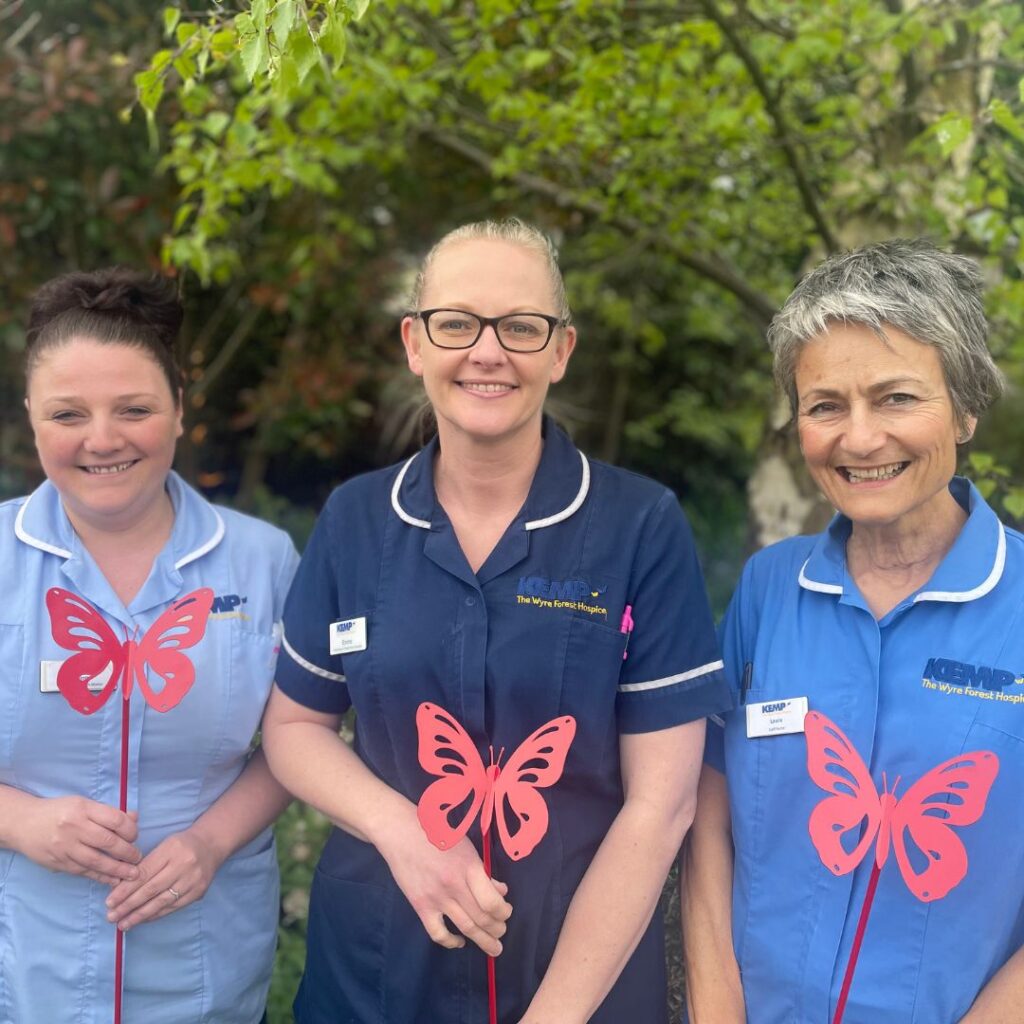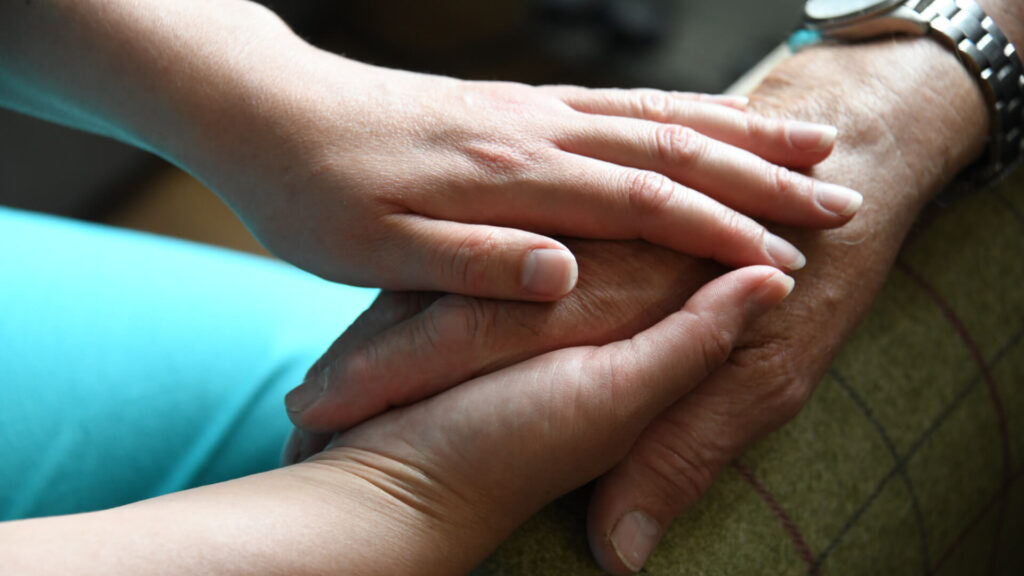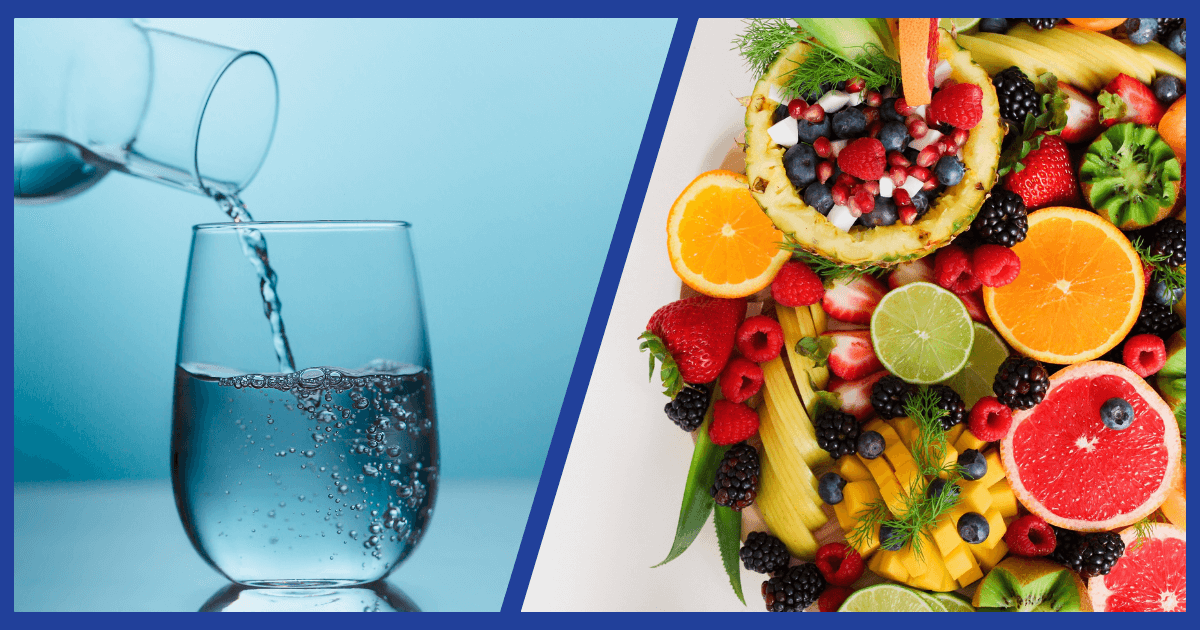Nutrition and Hydration Week takes place in March each year and highlights it’s importance in maintaining health and well being.
Nutrition and Hydration Week takes place in March each year and is an opportunity to highlight and educate it’s importance in maintaining health and well being.
Each year, the KEMP Day Hospice team take time to highlight Nutrition and Hydration Week, with different activities and information to help support our patients. But, if you’re caring for someone with a life-limiting illness, it’s important to understand how hydration and nutrition needs may change over time.
The Importance of Hydration and Nutrition in Life-Limiting Illness
Maintaining hydration and nutrition in life-limiting illness is essential for comfort and quality of life. The body’s needs will change over time, and small adjustments can make eating and drinking easier and more manageable.
It’s important that if you are caring for someone with a life-limiting illness that you consult with your local healthcare provider. They will be able to offer you guidance and support tailored for the individual.
The below is general information about Nutrition & Hydration and how needs may change whilst living with a life-limiting illness:
Why Hydration Matters
Good hydration helps prevent discomfort, infection, confusion, and fatigue. Dehydration can lead to:
- Headaches
- Tiredness
- Confusion
- Lack of concentration
- Constipation
- Urinary tract infection (UTI)
As illness progresses the body may need less fluid, and hydration needs may reduce. Ensuring a person remains as comfortable as possible is always the priority. Alternatives like ice chips, moist foods, and lip balms can ease dryness and provide refreshment.
Nutrition Challenges and Solutions
People with life-limiting illnesses often experience reduced appetite, swallowing difficulties, and taste changes. Large meals may feel overwhelming, so smaller, nutrient-dense portions such as smoothies, soups, puddings, and soft snacks can help maintain energy levels. High-calorie foods in small amounts can provide essential nutrients without requiring excessive intake.
Signs of Dehydration and Malnutrition
Caregivers should be aware of signs indicating that a person may need additional hydration or nourishment, including:
- Dry lips, mouth, or skin
- Increased confusion
- Fatigue or dizziness
- Reluctance to eat or drink
- Unintended weight loss
Recognizing these signs early and addressing them with tailored strategies from your healthcare provider can improve comfort and well-being.
Practical Nutrition & Hydration Tips for Caregivers
The following are some simple and practical tips to helping with nutrition and hydration for those living with a life-limiting illness:
- Modify food textures to make eating easier
- Offer frequent sips of flavoured drinks, or ice lollies
- Create a calm and stress-free eating environment
- Respect changes in appetite and personal preferences
By focusing on small, meaningful changes, caregivers can enhance comfort and dignity in those with life-limiting illnesses. Consulting a palliative care team can provide valuable guidance tailored to individual needs.
For further advice or guidance, please speak to your healthcare professional or find out more information about how KEMP Hospice can help and making a referral.








